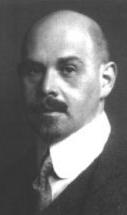Walther von Rathenau
From Kaiserreich
Walther von Rathenau (born Walther Rathenau on September, 29 1867 in Berlin, then part of Prussia and now in Germany) is a German industrialist and politician. Of Jewish origin, chairman of the Allgemeine Elektrizitäts-Gesellschaft (AEG), he was successful in the safeguarding of the Austro-Hungarian economy and was German State Secretary for Finance from 1926 to 1929. He is the current chairman of the Fortschrittliche Volkspartei (Progressive People's Party).
Biography
Son of Emil Rathenau, founder and chairman of AEG, an electrical-engineering company, Rathenau studied physics, chemistry, and philosophy in Berlin and Strassburg. He worked as an engineer before joining the AEG board in 1899, becoming a leading industrialist. During the Weltkrieg Rathenau held senior posts in the Raw Materials Department of the War Ministry, while becoming chairman of AEG upon his father's death in 1915. He played a leading role in putting Germany's economy on a war footing, enabling wartime Germany to continue its war effort for years despite shortages of labor and raw materials.
Von Rathenau took interest on Austro-Hungarian economy, who was in an advanced state of dilapidation after years of blockades and dearths that had stopped the consumption. However, he begun a serie of buyouts in the disaster-stricken sectors of energy and steel industry, helping to the boosting of Austro-Hungarian economy by proposing low prices and high quality products. Even if it enhanced the economic dependence of Austria-Hungary towards Germany, Rathenau managed to save the economy of a major ally of Germany and to turn its company into one of the most importants firms of the German industrial complex. As a result, he was ennobled by Kaiser Wilhelm II in 1924.
Von Rathenau was a moderate liberal in politics, and after the Weltkrieg he was one of the founders of the Fortschrittliche Volkspartei. Opposing state ownership of industry and advocating greater worker participation in the management of companies, he was chosen in 1926 by then Reichskanzler Alfred von Tirpitz to be his State Secretary for Finance. Even if he oversaw the upcoming economic difficulties for Germany, he never managed to obtain rallying for his policies, as he drew flak from the far right due to his links with Freemasonry and his Jewish ascent, even if he feared Zionism as socialism and was a strict proponent of the assimilation of German Jews. It culminated in an assassination attempt in 1929 from two far right military officers. As a result, he resigned on June, 24, considering that the current German political system was too strained with intolerance to permit true democracy. Still chairman of the Progressive People's Party, Rathenau engaged in anti-Syndicalist and anti-nationalist democracy, gaining few supporters amongst the German people.

